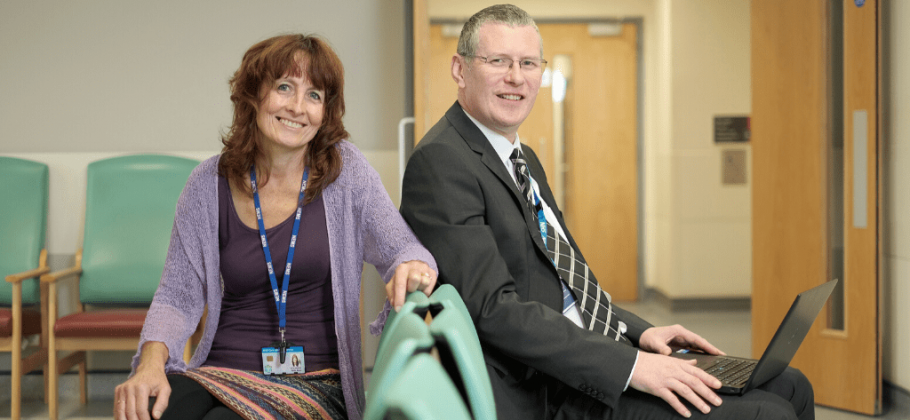Sharing patient data via the Medical Interoperability Gateway (MIG) is boosting efficiency and helping to save lives among 1.1m people in the Nottinghamshire area.
Ninety-two per cent of staff say the MIG from Healthcare Gateway has helped them to improve overall patient care. The MIG lies at the heart of the ever evolving Connected Nottinghamshire (CN) data sharing network, making vital, real-time information from 143 GP practices across six CCGs available to a wide range of NHS users including hospital doctors and nurses, social care workers and ambulance staff.
“We wanted to improve health and social care data sharing,” said Andy Evans, Programme Director at Connected Nottinghamshire. “After extensive research, we chose the MIG in 2014 as a low cost, high value tactical solution that we could deploy easily. We can summarise complex data from any source and share it widely to other systems via the MIG very quickly. We are now making information from over 90% of GP patient records available, compared to 15% in 2015.”
CN’s first target was to make patient records, including a supportive care dataset, available for acute emergency care and out-of-hours clinicians.
Shared medication data via the MIG was directly responsible for saving one overdose patient’s life and has also helped GPs and A&E doctors to spot attempts to obtain multiple medications – preventing unsafe duplicate prescribing. CN’s evaluation estimates record sharing has taken two minutes off every consultation (adding up to over half an hour in each clinician’s day) and reduced hospital admissions by one, per clinician per month.
The major benefit has been to make accessing medical histories quick and easy for clinicians, letting them make better informed decisions about assessing, prescribing, referring and planning care for patients. The additional dataset supports decisions around end of life care and treatment while recognising a patient’s wishes and preferences.
GP Dr Anita Bloor, Senior Medical Advisor at out-of-hours and urgent primary care provider NEMS, said: “Access to live primary care records via the MIG gives our doctors and other out-of-hours clinical staff the vital information they need to make safe, effective and appropriate decisions. We now look at the patient’s GP record in almost every case we manage and, if it’s not available for some reason, it’s like having one arm tied behind your back. Immediate access to GP records can also prevent unnecessary hospital admissions, which is particularly important with frail elderly people.”
The MIG worked so well that within two years of its launch in Nottinghamshire, it was enabling record sharing across many healthcare organisations including out-of-hours services, multiple hospitals, 111 staff, GPs, community carers, mental health workers and many others. Via the Midlands Accord, CN has crossed regional borders to share data with organisations including DHD 111 and the East Midland Ambulance Service.
Giving every GP the background data they needed to handle an unexpected death was another priority. If they didn’t know the patient or hadn’t seen them within the last 14 days, GPs previously had to opt for a post-mortem. Evans said the MIG had been “transformational” in changing local policy in this area.
“The MIG saves time otherwise spent contacting GPs and other trusts to obtain information,” said Leanne Alder, Research Radiographer at Nottingham University Hospital. “We can more easily check which other medications patients are taking for any potential drug interactions and it also stops patients getting annoyed that GPs and hospitals don’t talk to each other.”
The MIG is also making information from Nottinghamshire’s GP Repository for Clinical Care (GPRCC) more widely available to organisations like 111. The GPRCC analyses data from GP, community, mental health, acute provider and social care systems to produce information such as risk scores for COPD and an Electronic Frailty Index. Sharing valuable GPRCC intelligence through the MIG will allow clinicians to better prioritise response to acute workflows and guide patient care.
“We are delighted that the MIG employed originally as a tactical solution is now integral to the care provided to residents of Nottinghamshire,” said Liam King, Commercial Director at Healthcare Gateway. “There are many real quantifiable benefits in time saving, efficiencies and a more positive experience for patients and clinicians.”













